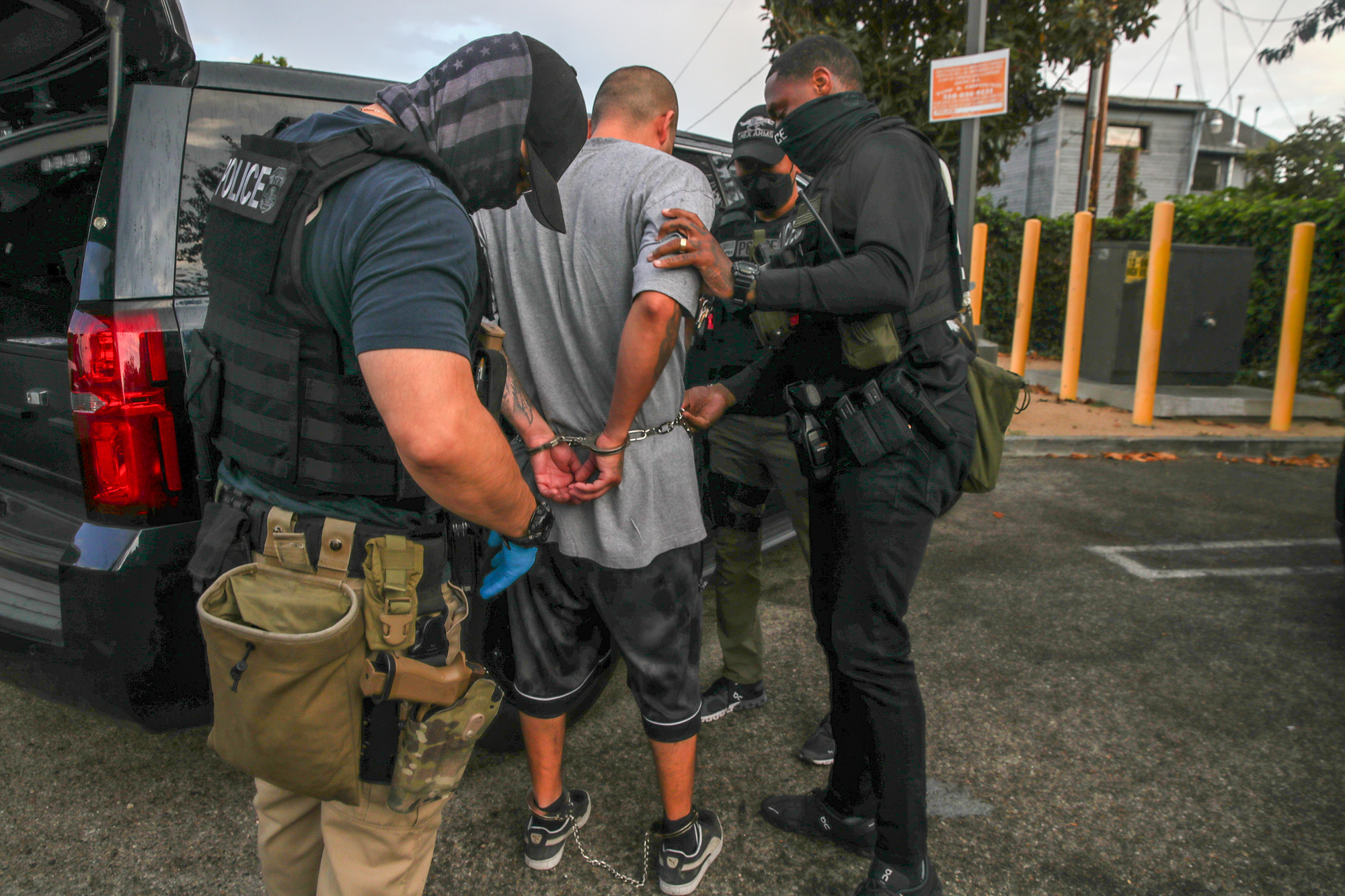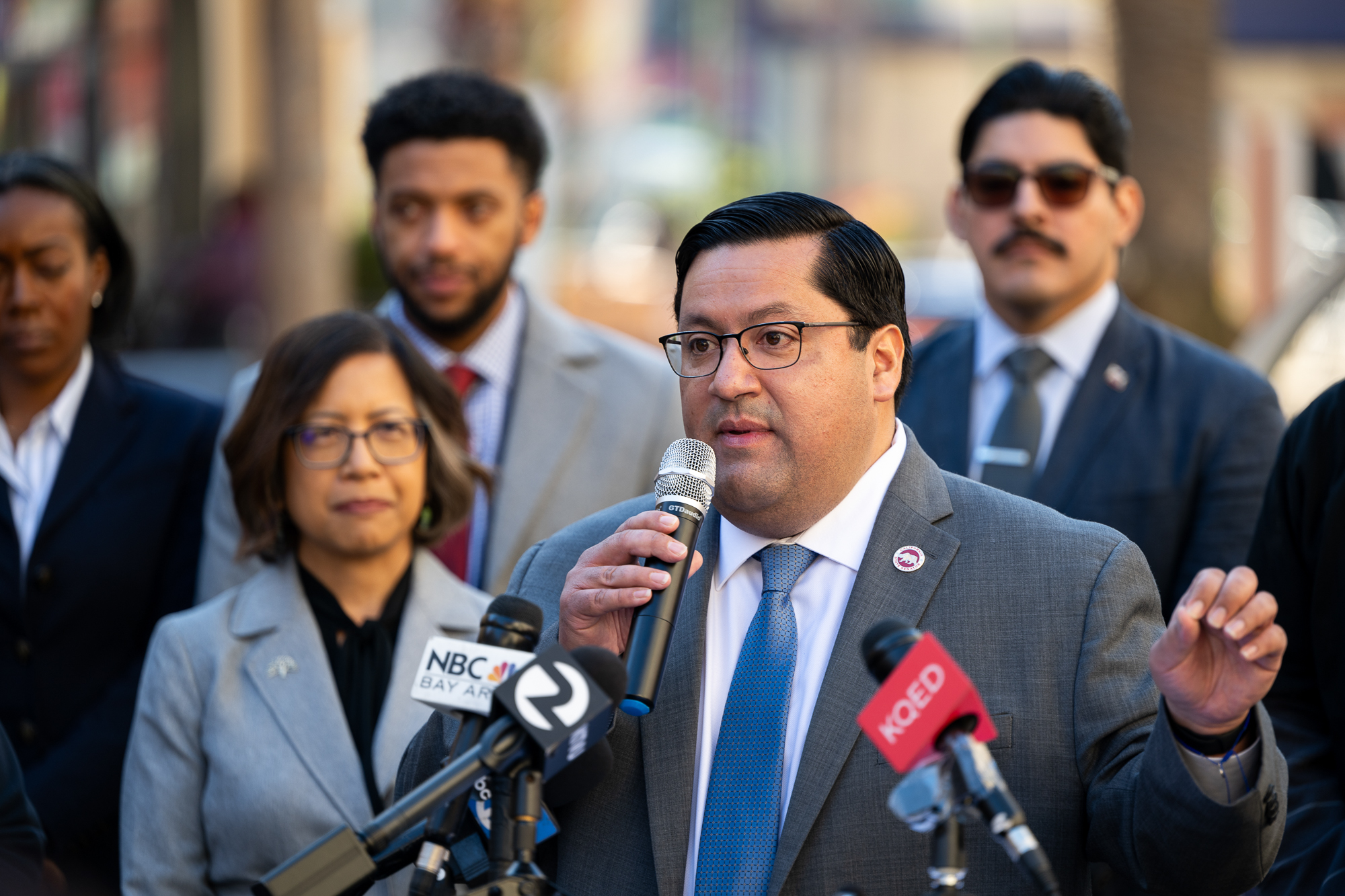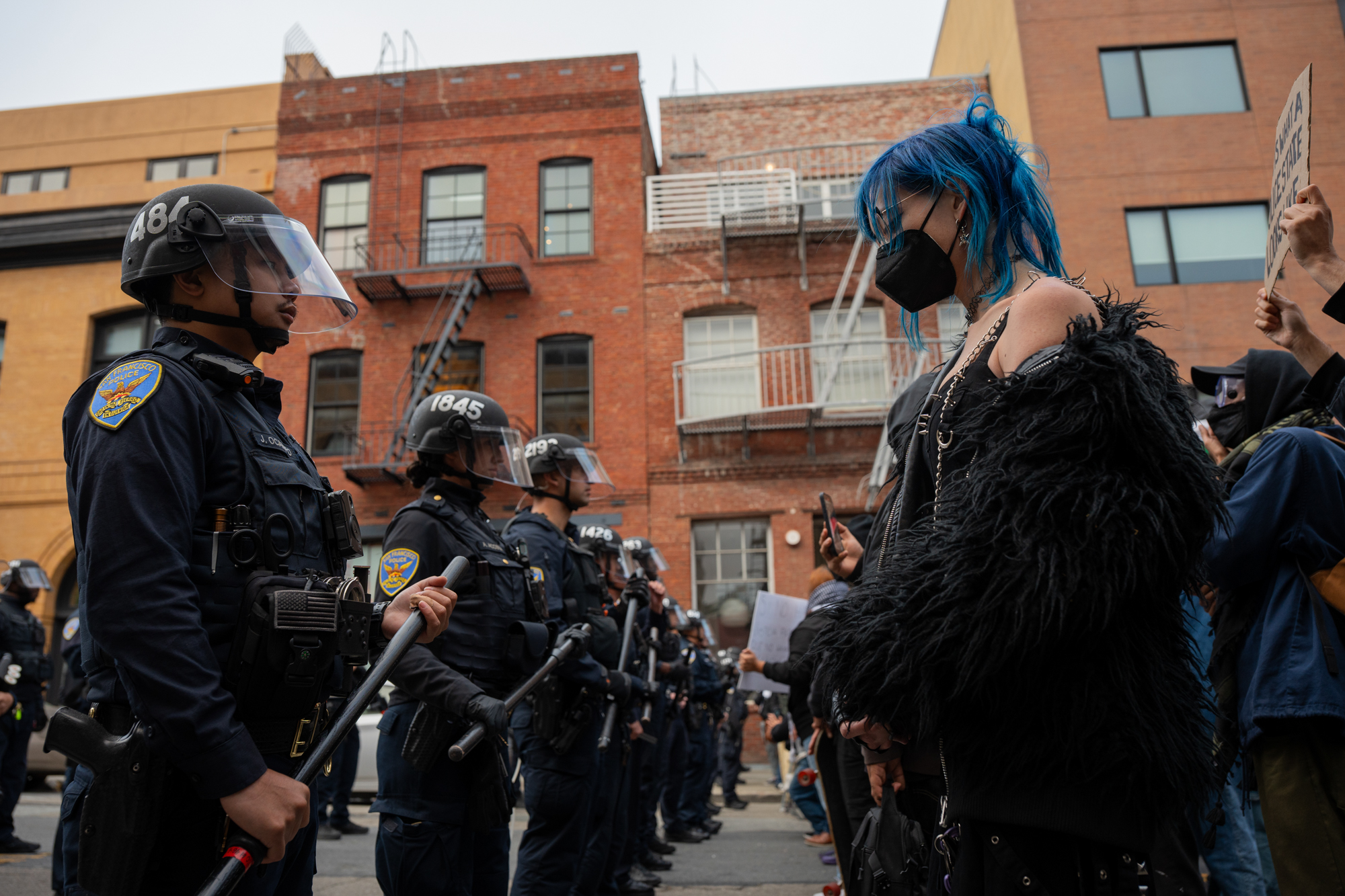Masked federal officers, descending on workplaces and immigration courts in dramatic scenes across the country, have drawn comparisons to secret police in authoritarian regimes.
But under a new state bill from two Bay Area lawmakers, Immigrations and Customs Enforcement officers and others would have to identify themselves while working in California. The legislation introduced Monday by state Sens. Scott Wiener (D–San Francisco) and Jesse Arreguín (D–Berkeley) would prevent police at all levels from covering their faces with masks or balaclavas while working — and would require them to be identifiable via uniform.
“We are seeing more and more law enforcement officers, particularly at the federal level, be in our community covering their faces entirely, not identifying themselves at all,” Wiener said at a press conference at San Francisco City Hall. “You can’t tell — are these law enforcement officers or a vigilante militia?”



